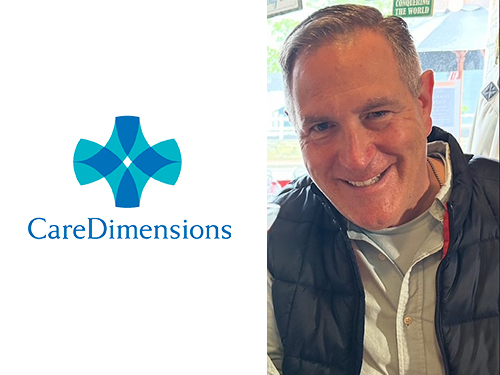How can we help?
888-283-1722
Call us now at 888-283-1722
24/7 Referrals and Nursing Support
Voices of Care Blog

6 Steps to Avoiding Hospice Work Burnout
Posted on December 20, 2016 by W. Ruben Exantus, Ph.D., M.Div. For me, being a pastor is among the world’s most honorable professions and constitutes the highest privilege for a person of faith. However, fulfilling this privilege and discharging the pastoral responsibilities demands a lot of sacrifices and hard work, which often leads to burnout. I’ve served as a senior pastor of one congregation for nearly 12 years and now as a hospice spiritual care leader and/or chaplain. I have experienced it first-hand.Hospice work: rewarding but can be stressful
Working in hospice is also considered one of the most rewarding work experiences someone may have. Hospice workers have an abundance of caring concern for their patients and their families. But they also may struggle with the pressure of fulfilling all their patients' needs and they may sacrifice their own well-being in the process, which can be stressful.Hospice workers have a unique challenge of coping with loss continually. In the midst of intimate and intense caregiving, hospice workers often forget to take care of themselves and some are on the brink of burning out. They may think they are just tired and not realize they are burned out. Christina Maslach, a leading expert in the measure of burnout, defined burnout as “a prolonged response to chronic work-related stress. It is a condition in which the worker is not just tired, stressed, or disillusioned, but rather is in a zone of pain.”
Reduce stress, avoid burnout
Taking care of oneself is crucial. While vacations are important, they are not enough. It is essential for hospice workers to have a lifestyle that incorporates manageable stress-reducing techniques. Here are six ways hospice workers can avoid burnout.- Understand the mission: Not everyone can work in hospice. Some of us walk into hospice work casually thinking of it as just a job. Unless you see it as a career in the helping profession, you’re going to have a hard time dealing with what the work brings to your life. It requires high organizational and coping skills. Hospice will change your life, if it hasn’t yet.
- Guard your heart: Your heart is the center of the whole person. It is the source of all your emotions. If you guard your heart well, you will be well. When you guard your heart, you guard your thoughts, feelings, desires, will, and choices you make. Accept your limitations—you can’t be all things to all people. Use your common sense. Some things you do or decisions you make will affect you physically and mentally, and ultimately affect your family relationships. If you’re burned out, it's not just you that is affected -- it will have an impact on your family, patients, and your employer.
- Have a support group: Create a support system for yourself—have at least one person with whom you can share your problems. Learn to forgive others when you’re disappointed. If you are grieving, don’t make them guess about how you’d like to be supported. Tell them, and you’ll end up feeling a lot better. If it’s a work-based support system, chances are they’re experiencing the same issues.
- Surround yourself with good friends: You need some good friends to help when you go through difficult moments in your life. You need them for strength, courage, and laughter. Not everyone you meet at work and go to lunch with is a friend. A friend is someone you choose to be with and with whom you share your feelings -- good times and bad times. As Oprah Winfrey writes, “Lots of people want to ride with you in the limo, but what you want is someone who will take the bus with you when the limo breaks down.”
- Exercise: If you are feeling down emotionally after the loss of someone you have cared for, you need an emotional lift or may need to blow off some steam after a stressful day. Exercise can help. A workout at the gym or just a 30-minute walk can help. We all know that physical activity stimulates various chemicals in our brain, which may leave our feelings happier and more relaxed.
- Relax: Relaxation decreases the effects of stress on your mind and body. Work environments, circumstances, expectations, and scheduling demands tend to increase the stress on the hospice worker in addition to the emotional stressors. You need to get your stress under control before it spirals out of control and inevitably leads to burnout. When you’re faced with numerous responsibilities and tasks and the demands of your work, relaxation may take a back seat in your life. But it's important to take care of yourself so you can be strong for others. So, use relaxation techniques such as music, massage, and meditation with coping methods including positive thinking, humor, time management, exercise, and getting enough sleep. And finally reach out to your support group, family, and friends.
By changing your lifestyle to manage stress better, you will avoid burnout and help yourself, your patients, and your family.
At Care Dimensions, our mission truly defines our culture. We are compassionate, caring, empathetic, kind, respectful, and understanding. If you are mission-driven and want to work for a leading health care organization that truly makes a difference for patients and families we serve, visit our Careers Page.
Click the Keep Me Informed Button to sign up for our Career Updates e-newsletter.

About the author
W. Ruben Exantus is a chaplain with Care Dimensions and author of "Pastoral Burnout & Leadership Styles: Factors Contributing to Stress and Ministerial Turnover."
Additional Posts
Not All Spiritual Care Involves Prayer – Sometimes It's About Popcorn
Posted on October 19, 2025 by Stephen Thompson Kohut, Spiritual Counselor in Hospice, Hospice careersNot everyone is religious, but Steve Kohut believes most people are spiritual. That's where his role as a hospice spiritual counselor comes in. ...
Continue readingSupporting Life's Final Journey: My Path as a Hospice Aide
Posted on June 16, 2025 by Esther Rodriguez, Hospice Aide in Hospice careersHospice Aide Esther Rodriguez explains what drew her to end-of-life care and how she helps families understand that hospice is about quality of life and dignity. ...
Continue readingFinding My Calling: My Journey as a Hospice Aide
Posted on June 9, 2025 by Melanie Anderson, Senior Hospice Aide in Hospice careersSenior Hospice Aide Melanie Anderson discusses what drew her to hospice and what she enjoys most about working at Care Dimensions. ...
Continue readingAnyone—patient, family, care provider—can make a referral. Fill in the form online or call us today.
Since 1978, Care Dimensions, formerly Hospice of the North Shore, has provided comprehensive and compassionate care for individuals and families dealing with life-threatening illnesses. As the non-profit leader in advanced illness care, we offer services in over 100 communities in Massachusetts.
Copyright 2026 | Care Dimensions, 75 Sylvan Street, Suite B-102, Danvers, MA 01923 | 888-283-1722 | 978-774-7566 |










